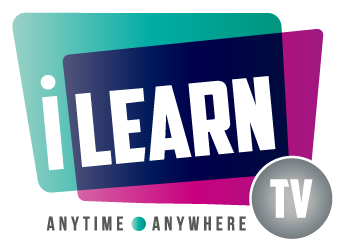Projects

EDUC - European Digital UniverCity (EU, 5 ME)
EDUC aims to establish a collaborative, inclusive, integrated and efficient governance that will build on and contribute to the mutual trust between, and the involvement of, our six universities in all areas, from bottom to top. Thematic working groups involving all stakeholder groups at all organisational levels of our European Digital UniverCity will address topics such as Mobility and Exchange Scenarios, European Skills and Competencies Sustainability and Outreach. EDUC will also establish new communication and coordination flows which will allow the different university services to collaborate horizontally and, ultimately, harmonize work flows. Structures will be brought together in order to establish direct communication between the different services inside the universities – such as international offices, student and research administration offices, and centers for students with special needs.

ILEARNTV Anywhere Anytime (MIUR, 10 ME)
ILEARNTV will promote the evolution of school communities towards a new paradigm based on shared knowledge and collaborative production. In order to support the current transition phase experienced by over 700,000 teachers in Italy, ILEARNTV will define new models for their training inside an innovative platform as well as new methods for providing multi-channel digital learning content via PCs, tablets and smartphones. Within an advanced Software-as-a-Service Learning Content Management System (LCMS), the Cloud infrastructure will be responsible of managing hardware resources, while the software infrastructure will provide the platform’s application functions to end users. Learning material will be indexed into a digital repository and made available for re-use. Collaborative creation of multi-format and multi-media training content will be based on predefined and customizable templates. In this way, ILEARNTV will support teachers in facing the current technological changes, reducing costs and time generally required for their traditional training.

DECODE – DEcentralised Citizens Owned Data Ecosystem (EU, 5 ME)
DECODE will increase digital sovereignty of European citizens by enabling them to produce, access and control their data and exchange contextualised information in real-time, and in a confidential, and scalable manner. DECODE will develop a modular privacy-aware IoT hub with a free and open source operating system backed by a state of the art blockchain infrastructure supporting smart-contracts and privacy protections.The architecture will be demonstrated through four pilots in Barcelona and Amsterdam, in the field of digital democracy, citizen sensing, and collaborative economy. The pilots will be run with the active involvement of social entrepreneurs, hackers, and makers. Innovators will be able to build solutions on top of the platform through hackathons and open challenges, while ensuring their security, resilience and privacy preserving qualities. This aims to create a decentralised innovation ecosystem that will attract a critical mass able to shift the current centralised data-driven economy towards a decentralised, sustainable and commons-based economy. DECODE puts agency and data control in the hands of citizens, to improve citizens’ well-being and society for the collective benefit of all.

ELIOS – E-Learning Interactive OpportunitieS (MIUR, 1.2 ME)
ELIOS will promote the adoption of e-learning within the University of Cagliari. With ELIOS, students will be able to attend one of the following degree programmes in blended-learning settings: (i) Administration and Organization, (ii) Cultural Heritage and Entraitainment, (iii) Economics and Business Administration, (iv) Electrical Electronic and Computer Engineering. Students enrolled within ELIOS will share the same study programmes and final exams taken by traditionally-enrolled students. Moreover, they will receive the same qualification at the end of the programme. Large part of the courses will be available online through a dedicated Learning Management Systems (LMS), anywhere, any time. The LMS will also provide both asynchronous and synchronous learning tools. Students within ELIOS will benefit from a multi-channel technical assistance service aimed at supporting them during distance learning activites.